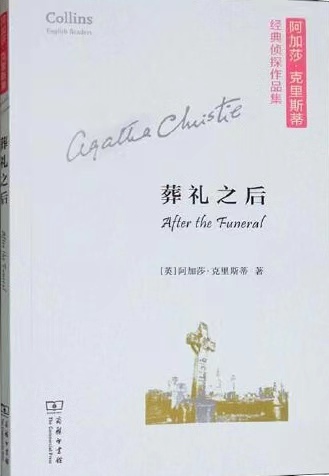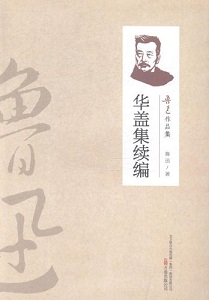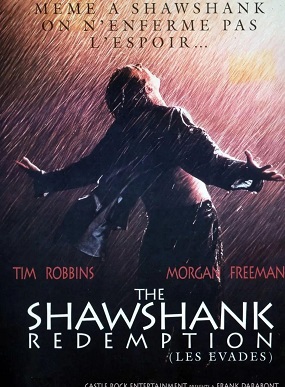On the following morning, two hours at least before day-break, Thenardier, seated beside a candle in the public room of the tavern, pen in hand, was making out the bill for the traveller with the yellow coat.
His wife, standing beside him, and half bent over him, was following him with her eyes. They exchanged not a word. On the one hand, there was profound meditation, on the other, the religious admiration with which one watches the birth and development of a marvel of the human mind. A noise was audible in the house; it was the Lark sweeping the stairs.
After the lapse of a good quarter of an hour, and some erasures, Thenardier produced the following masterpiece:--
BILL OF THE GENTLEMAN IN No. 1.
Supper . . . . . . . . . . . . . . . 3 francs.
Chamber . . . . . . . . . . . . . . 10 "
Candle . . . . . . . . . . . . . . . 5 "
Fire . . . . . . . . . . . . . . . . 4 "
Service . . . . . . . . . . . . . . 1 "
————--
Total . . . . . . 23 francs.
Service was written servisse.
"Twenty-three francs!" cried the woman, with an enthusiasm which was mingled with some hesitation.
Like all great artists, Thenardier was dissatisfied.
"Peuh!" he exclaimed.
It was the accent of Castlereagh auditing France's bill at the Congress of Vienna.
"Monsieur Thenardier, you are right; he certainly owes that," murmured the wife, who was thinking of the doll bestowed on Cosette in the presence of her daughters. "It is just, but it is too much. He will not pay it."
Thenardier laughed coldly, as usual, and said:--
"He will pay."
This laugh was the supreme assertion of certainty and authority. That which was asserted in this manner must needs be so. His wife did not insist.
She set about arranging the table; her husband paced the room. A moment later he added:--
"I owe full fifteen hundred francs!"
He went and seated himself in the chimney-corner, meditating, with his feet among the warm ashes.
"Ah! by the way," resumed his wife, "you don't forget that I'm going to turn Cosette out of doors to-day? The monster! She breaks my heart with that doll of hers! I'd rather marry Louis XVIII. than keep her another day in the house!"
Thenardier lighted his pipe, and replied between two puffs:--
"You will hand that bill to the man."
Then he went out.
Hardly had he left the room when the traveller entered.
Thenardier instantly reappeared behind him and remained motionless in the half-open door, visible only to his wife.
The yellow man carried his bundle and his cudgel in his hand.
"Up so early?" said Madame Thenardier; "is Monsieur leaving us already?"
As she spoke thus, she was twisting the bill about in her hands with an embarrassed air, and making creases in it with her nails. Her hard face presented a shade which was not habitual with it,-- timidity and scruples.
To present such a bill to a man who had so completely the air "of a poor wretch" seemed difficult to her.
The traveller appeared to be preoccupied and absent-minded. He replied:--
"Yes, Madame, I am going."
"So Monsieur has no business in Montfermeil?"
"No, I was passing through. That is all. What do I owe you, Madame," he added.
The Thenardier silently handed him the folded bill.
The man unfolded the paper and glanced at it; but his thoughts were evidently elsewhere.
"Madame," he resumed, "is business good here in Montfermeil?"
"So so, Monsieur," replied the Thenardier, stupefied at not witnessing another sort of explosion.
She continued, in a dreary and lamentable tone:--
"Oh! Monsieur, times are so hard! and then, we have so few bourgeois in the neighborhood! All the people are poor, you see. If we had not, now and then, some rich and generous travellers like Monsieur, we should not get along at all. We have so many expenses. Just see, that child is costing us our very eyes."
"What child?"
"Why, the little one, you know! Cosette--the Lark, as she is called hereabouts!"
"Ah!" said the man.
She went on:--
"How stupid these peasants are with their nicknames! She has more the air of a bat than of a lark. You see, sir, we do not ask charity, and we cannot bestow it. We earn nothing and we have to pay out a great deal. The license, the imposts, the door and window tax, the hundredths! Monsieur is aware that the government demands a terrible deal of money. And then, I have my daughters. I have no need to bring up other people's children."
The man resumed, in that voice which he strove to render indifferent, and in which there lingered a tremor:--
"What if one were to rid you of her?"
"Who? Cosette?"
"Yes."
The landlady's red and violent face brightened up hideously.
"Ah! sir, my dear sir, take her, keep her, lead her off, carry her away, sugar her, stuff her with truffles, drink her, eat her, and the blessings of the good holy Virgin and of all the saints of paradise be upon you!"
"Agreed."
"Really! You will take her away?"
"I will take her away."
"Immediately?"
"Immediately. Call the child."
"Cosette!" screamed the Thenardier.
"In the meantime," pursued the man, "I will pay you what I owe you. How much is it?"
He cast a glance on the bill, and could not restrain a start of surprise:--
"Twenty-three francs!"
He looked at the landlady, and repeated:--
"Twenty-three francs?"
There was in the enunciation of these words, thus repeated, an accent between an exclamation and an interrogation point.
The Thenardier had had time to prepare herself for the shock. She replied, with assurance:--
"Good gracious, yes, sir, it is twenty-three francs."
The stranger laid five five-franc pieces on the table.
"Go and get the child," said he.
At that moment Thenardier advanced to the middle of the room, and said:--
"Monsieur owes twenty-six sous."
"Twenty-six sous!" exclaimed his wife.
"Twenty sous for the chamber," resumed Thenardier, coldly, "and six sous for his supper. As for the child, I must discuss that matter a little with the gentleman. Leave us, wife."
Madame Thenardier was dazzled as with the shock caused by unexpected lightning flashes of talent. She was conscious that a great actor was making his entrance on the stage, uttered not a word in reply, and left the room.
As soon as they were alone, Thenardier offered the traveller a chair. The traveller seated himself; Thenardier remained standing, and his face assumed a singular expression of good-fellowship and simplicity.
"Sir," said he, "what I have to say to you is this, that I adore that child."
The stranger gazed intently at him.
"What child?"
Thenardier continued:--
"How strange it is, one grows attached. What money is that? Take back your hundred-sou piece. I adore the child."
"Whom do you mean?" demanded the stranger.
"Eh! our little Cosette! Are you not intending to take her away from us? Well, I speak frankly; as true as you are an honest man, I will not consent to it. I shall miss that child. I saw her first when she was a tiny thing. It is true that she costs us money; it is true that she has her faults; it is true that we are not rich; it is true that I have paid out over four hundred francs for drugs for just one of her illnesses! But one must do something for the good God's sake. She has neither father nor mother. I have brought her up. I have bread enough for her and for myself. In truth, I think a great deal of that child. You understand, one conceives an affection for a person; I am a good sort of a beast, I am; I do not reason; I love that little girl; my wife is quick-tempered, but she loves her also. You see, she is just the same as our own child. I want to keep her to babble about the house."
The stranger kept his eye intently fixed on Thenardier. The latter continued:--
"Excuse me, sir, but one does not give away one's child to a passer-by, like that. I am right, am I not? Still, I don't say-- you are rich; you have the air of a very good man,--if it were for her happiness. But one must find out that. You understand: suppose that I were to let her go and to sacrifice myself, I should like to know what becomes of her; I should not wish to lose sight of her; I should like to know with whom she is living, so that I could go to see her from time to time; so that she may know that her good foster-father is alive, that he is watching over her. In short, there are things which are not possible. I do not even know your name. If you were to take her away, I should say: `Well, and the Lark, what has become of her?' One must, at least, see some petty scrap of paper, some trifle in the way of a passport, you know!"
The stranger, still surveying him with that gaze which penetrates,as the saying goes, to the very depths of the conscience, replied in a grave, firm voice:-- "Monsieur Thenardier, one does not require a passport to travel five leagues from Paris. If I take Cosette away, I shall take her away, and that is the end of the matter. You will not know my name, you will not know my residence, you will not know where she is; and my intention is that she shall never set eyes on you again so long as she lives. I break the thread which binds her foot, and she departs. Does that suit you? Yes or no?"
Since geniuses, like demons, recognize the presence of a superior God by certain signs, Thenardier comprehended that he had to deal with a very strong person. It was like an intuition; he comprehended it with his clear and sagacious promptitude. While drinking with the carters, smoking, and singing coarse songs on the preceding evening, he had devoted the whole of the time to observing the stranger, watching him like a cat, and studying him like a mathematician. He had watched him, both on his own account, for the pleasure of the thing, and through instinct, and had spied upon him as though he had been paid for so doing. Not a movement, not a gesture, on the part of the man in the yellow great-coat had escaped him. Even before the stranger had so clearly manifested his interest in Cosette, Thenardier had divined his purpose. He had caught the old man's deep glances returning constantly to the child. Who was this man? Why this interest? Why this hideous costume, when he had so much money in his purse? Questions which he put to himself without being able to solve them, and which irritated him. He had pondered it all night long. He could not be Cosette's father. Was he her grandfather? Then why not make himself known at once? When one has a right, one asserts it. This man evidently had no right over Cosette. What was it, then? Thenardier lost himself in conjectures. He caught glimpses of everything, but he saw nothing. Be that as it may, on entering into conversation with the man, sure that there was some secret in the case, that the latter had some interest in remaining in the shadow, he felt himself strong; when he perceived from the stranger's clear and firm retort, that this mysterious personage was mysterious in so simple a way, he became conscious that he was weak. He had expected nothing of the sort. His conjectures were put to the rout. He rallied his ideas. He weighed everything in the space of a second. Thenardier was one of those men who take in a situation at a glance. He decided that the moment had arrived for proceeding straightforward, and quickly at that. He did as great leaders do at the decisive moment, which they know that they alone recognize; he abruptly unmasked his batteries.
"Sir," said he, "I am in need of fifteen hundred francs."
The stranger took from his side pocket an old pocketbook of black leather, opened it, drew out three bank-bills, which he laid on the table. Then he placed his large thumb on the notes and said to the inn-keeper:--
"Go and fetch Cosette."
While this was taking place, what had Cosette been doing?
On waking up, Cosette had run to get her shoe. In it she had found the gold piece. It was not a Napoleon; it was one of those perfectly new twenty-franc pieces of the Restoration, on whose effigy the little Prussian queue had replaced the laurel wreath. Cosette was dazzled. Her destiny began to intoxicate her. She did not know what a gold piece was; she had never seen one; she hid it quickly in her pocket, as though she had stolen it. Still, she felt that it really was hers; she guessed whence her gift had come, but the joy which she experienced was full of fear. She was happy; above all she was stupefied. Such magnificent and beautiful things did not appear real. The doll frightened her, the gold piece frightened her. She trembled vaguely in the presence of this magnificence. The stranger alone did not frighten her. On the contrary, he reassured her. Ever since the preceding evening, amid all her amazement, even in her sleep, she had been thinking in her little childish mind of that man who seemed to be so poor and so sad, and who was so rich and so kind. Everything had changed for her since she had met that good man in the forest. Cosette, less happy than the most insignificant swallow of heaven, had never known what it was to take refuge under a mother's shadow and under a wing. For the last five years, that is to say, as far back as her memory ran, the poor child had shivered and trembled. She had always been exposed completely naked to the sharp wind of adversity; now it seemed to her she was clothed. Formerly her soul had seemed cold, now it was warm. Cosette was no longer afraid of the Thenardier. She was no longer alone; there was some one there.
She hastily set about her regular morning duties. That louis, which she had about her, in the very apron pocket whence the fifteen-sou piece had fallen on the night before, distracted her thoughts. She dared not touch it, but she spent five minutes in gazing at it, with her tongue hanging out, if the truth must be told. As she swept the staircase, she paused, remained standing there motionless, forgetful of her broom and of the entire universe, occupied in gazing at that star which was blazing at the bottom of her pocket.
It was during one of these periods of contemplation that the Thenardier joined her. She had gone in search of Cosette at her husband's orders. What was quite unprecedented, she neither struck her nor said an insulting word to her.
"Cosette," she said, almost gently, "come immediately."
An instant later Cosette entered the public room.
The stranger took up the bundle which he had brought and untied it. This bundle contained a little woollen gown, an apron, a fustian bodice, a kerchief, a petticoat, woollen stockings, shoes--a complete outfit for a girl of seven years. All was black.
"My child," said the man, "take these, and go and dress yourself quickly."
Daylight was appearing when those of the inhabitants of Montfermeil who had begun to open their doors beheld a poorly clad old man leading a little girl dressed in mourning, and carrying a pink doll in her arms, pass along the road to Paris. They were going in the direction of Livry.
It was our man and Cosette.
No one knew the man; as Cosette was no longer in rags, many did not recognize her. Cosette was going away. With whom? She did not know. Whither? She knew not. All that she understood was that she was leaving the Thenardier tavern behind her. No one had thought of bidding her farewell, nor had she thought of taking leave of any one. She was leaving that hated and hating house.
Poor, gentle creature, whose heart had been repressed up to that hour!
Cosette walked along gravely, with her large eyes wide open, and gazing at the sky. She had put her louis in the pocket of her new apron. From time to time, she bent down and glanced at it; then she looked at the good man. She felt something as though she were beside the good God.
第二天早晨,离天亮至少还有两个钟头,德纳第老板已经到了酒店的矮厅里,点起了一支烛,捏着一管笔,在桌子上替那穿黄大衣的客人编造账单。
那妇人,立着,半弯着腰,望着他写。他们彼此都不吭声,一方面是深思熟虑,另一方面是一种虔敬心情,那是从人类的智慧中诞生光大的。在那所房子里,只听见一种声音,就是百灵鸟扫楼梯的声音。
经过了足足一刻钟和几次涂改之后,德纳第编出了这样一张杰作:
一号房间贵客账单
晚餐3法郎
房间10法郎
蜡烛5法郎
火炉4法郎
饭采1法郎
共计23法郎
饭菜写成了“饭采”。
“二十三法郎!”那妇人喊了出来,在她那兴奋的口吻中夹杂着怀疑的语气。
德纳第,和所有的大艺术家一样,并不感到满意。他说了一声:
“呸!”
那正是凯塞尔来①在维也纳会议上开列法国赔款清单时的口气。
①凯塞尔来(Costlereagh),英国政治家,反拿破仑联盟的中心人物。
“你开得对,德纳第先生,他的确应当出这么多,”那妇人叽叽咕咕地说,心里正想着昨晚当着她两个女儿的面送给珂赛特的那个娃娃,“这是公道的,但是数目太大了。他不见得肯付。”
德纳第冷笑了一下,说道:
“他会付的。”
那种冷笑正说明自信心和家长派头的最高表现,说出的话就得做到。那妇人一点不坚持自己的意见。她开始动手整理桌子,丈夫在厅里纵横来往地走动。过了一会儿,他又补上一句:
“我还足足欠人家一千五百法郎呢,我!”
他走到壁炉角上,坐下来细细打算,两只脚踏在热灰上。
“当真是!”那妇人跟着又说,“我今天要把珂赛特撵出大门,你忘了吗?这妖精!她那娃娃,她使我伤心透了!我宁愿她嫁给路易十八也不愿她多留一天在家里!”
德纳第点着他的烟斗,在连吸两口烟的空隙间回答说:
“你把这账单交给那个人。”
他跟着就走出去了。
他刚走出厅堂门,那客人就进来了。
德纳第立即转身跟在他的后面走来,走到那半开着的门口时,停了下来,立着不动,只让他女人看得见他。
那个穿黄大衣的人,手里捏着他的棍子和包袱。
“这么早就起来了!”德纳第大娘说,“难道先生就要离开我们这里吗?”
她一面这样说,一面带着为难的样子,把那张账单拿在手里翻来复去,并用指甲掐着它,折了又折。她那张横蛮的脸上隐隐带有一种平日很少见的神情,胆怯和狐疑的神情。
拿这样一张账单去送给一个显然是个地道的“穷鬼”的客人,在她看来,这是件为难的事。
客人好象心里正想着旁的事,没有注意她似的。他回答说:
“是呀,大嫂,我就要走。”
“那么,”她说,“先生到孟费郿来就没有要办的事?”
“是的。我路过此地,没有旁的事。”
“大嫂,”他又说,“我欠多少钱?”
德纳第大娘,一声不响,把那账单递给他。
客人把那张纸打开,望着它,但是他的注意力显然是在别的地方。
“大嫂,”他接着说,“你们在孟费郿这地方生意还好吧?”
“就这样,先生,”德纳第大娘回答,她看见那客人并不发作,感到十分诧异。
她用一种缠绵悱恻的声调接着往下说:
“呵!先生,日子是过得够紧的了!在我们这种地方,很少有阔气人家!全是些小家小户,您知道。要是我们不间或遇到一些象先生您这样又慷慨又有钱的过路客人的话!我们的开销又这么多。比方说,这小姑娘,她把我们的血都吸尽了。”
“哪个小姑娘?”
“还不就是那个小姑娘嘛,您知道!珂赛特!这里大家叫做百灵鸟的!”
“啊!”那人说。
她接下去说:
“多么傻,这些乡下人,替别人取这种小名!叫她做蝙蝠还差不多,她哪里象只百灵鸟。请您说说,先生,我们并不求人家布施,可是也不能老布施给旁人。营业执照,消费税,门窗税,附加税!先生知道政府要起钱来是吓坏人的。再说,我还有两个女儿,我。我用不着再养别人的孩子。”
那人接着说:
“要是有人肯替您带开呢?”他说这句话时,极力想使声音显得平常,但那声音仍然有些发抖。
“带开谁?珂赛特吗?”
“是啊。”
店婆子的那张横蛮的红脸立刻显得眉飞色舞,丑恶不堪。
“啊,先生!我的好先生!把她领去吧,你留下她吧,带她走吧,抱她走吧,去加上白糖,配上蘑菇,喝她的血,吃她的肉吧,愿您得到慈悲的童贞圣母和天国所有一切圣人的保佑!”
“就这么办。”
“当真?您带她走?”
“我带她走。”
“马上走?”
“马上走。您去把那孩子叫来。”
“珂赛特!”德纳第大娘大声喊。
“这会儿,”那人紧接着说,“我来付清我的账。是多少?”
他对那账单望了一眼,不禁一惊。
“二十三个法郎!”
他望着那店婆又说了一遍:
“二十三个法郎?”
从重复这两句话的声调里,可以辨出惊叹号和疑问号的区别。
德纳第大娘对这一质问早已作好思想准备。她安安稳稳地回答说:
“圣母,是啊,先生,是二十三个法郎。”
那外来客人把五枚值五法郎的钱放在桌上。
“请把那小姑娘找来。”
正在这时,德纳第走到厅堂的中央说:
“先生付二十六个苏就得。”
“二十六个苏!”那妇人喊道。
“房间二十个苏,”德纳第冷冰冰地接着说,“晚餐六个苏。至于小姑娘的问题,我得和这位先生谈几句。你走开一下,我的娘子。”
德纳第大娘的心里忽然一亮,仿佛见到智慧之光一闪。她感到名角登台了,她一声不响,立即走了出去。
到只剩下他们两人时,德纳第端了一张椅子送给客人。客人坐下,德纳第立着,他脸上显出一种怪驯良淳朴的神情。
“先生,”他说,“是这样,我来向您说明。那孩子,我可疼她呢,我。”
那陌生人用眼睛盯着他说:
“哪个孩子?”
德纳第接着说:
“说来也真奇怪!真是舍不得。这是什么钱?这几枚值一百个苏的钱,您请收回吧。我爱的是个女孩儿。”
“谁?”那陌生人问。
“哎,我们的这个小珂赛特嘛!您不是要把她带走吗?可是,说句老实话,我不能同意,这话一点不假,就象您是一位正人君子一样。这孩子,如果走了,我要挂念的。我亲眼看着她从小长大的。她害我们花钱,那是实在的;她有许多缺点,那也是实在的;我们不是有钱人,那也是实在的;她一次病就让我付出了四百法郎的药钱,那也是实在的!但是人总得替慈悲的上帝做点事。这种东西既没有爹,也没有妈,我把她养大了。我赚了面包给她和我吃。的的确确,我舍不得,这孩子。您懂吗,彼此有了感情,我是一个烂好人,我;道理我说不清,我爱她,这孩子;我女人性子躁,可是她也爱她。您明白,她就好象是我们自己的孩子一样。我需要她待在我家里叽叽喳喳地有说有笑。”
那陌生人一直用眼睛盯着他。他接着说:
“对不起,请原谅,先生,不见得有人肯把自己的孩子随便送给一个过路人吧,我这话,能说不对吗?并且,您有钱,也很象是个诚实人,我不说这对她是不是有好处,但总得搞清楚。您懂吗?假定我让她走,我割爱牺牲,我也希望能知道她去什么地方,我不愿丢了以后就永远摸不着她的门儿。我希望能知道她是在谁的家里,好时常去看看她,好让她知道她的好义父确是在那里照顾她。总而言之,有些事是行不通的。我连您贵姓也还不知道。您带着她走了,我说:‘好,百灵鸟呢?她到什么地方去了呢?’至少也总得先看看一张什么马马虎虎的证件,一张小小的护照吧,什么都行!”
那陌生人一直用那种,不妨这样说,直看到心底的眼光注视着他,又用一种沉重坚定的口吻对他说:
“德纳第先生,从巴黎来,才五法里,不会有人带护照的。假使我要带走珂赛特,我就一定要带她走,干脆就是这样。您不会知道我的姓名,您不会知道我的住址,您也不会知道她将来住在什么地方,我的主意是她今生今世不再和您见面。我要把拴在她脚上的这根绳子一刀两断,让她离开此地。这样合您的意吗?行或是不行,您说。”
正好象魔鬼和妖怪已从某些迹象上看出有个法力更大的神要出现一样,德纳第也了解到他遇到了一个非常坚强的对手。这好象是种直觉,他凭他那种清晰和敏锐的机警,已经了解到这一点。从昨夜起,他尽管一面陪着那些车夫们一道喝酒,抽烟,唱下流歌曲,却没有一刻不在窥伺这陌生客人,没有一刻不象猫儿那样在注视着他,没有一刻不象数学家那样在算计他。他那样侦察,是为了想看出一个究竟,同时也是由于自己的兴趣和本能,而且好象是被人买通了来做这侦察工作似的。那个穿黄大氅的人的每一种姿势和每一个动作全都没有逃过他的眼睛。即使是在那个来历不明的人还没有对珂赛特那样明显表示关切的时候,德纳第就已识破了这一点。他早已察觉到这老年人的深沉的目光随时都回到那孩子身上。为什么这样关切?这究竟是个什么人?为什么,荷包里有那么多的钱,而衣服又穿得这样寒酸?他向自己提出了这些问题,却得不出解答,所以感到愤懑。他在这些问题上揣测了一整夜。这不可能是珂赛特的父亲。难道是祖父辈吗?那么,又为什么不立即说明自己的来历呢?当我们有一种权利,我们总要表现出来。这人对珂赛特显然是没有什么权利的。那么,这又是怎么回事呢?德纳第迷失在种种假设中了。他感到了一切,但是什么也看不清楚。不管怎样,他在和那人进行谈话时,他深信在这一切里有种秘密,也深信这个人不能不深自隐讳,因而他感到自己气壮;可是当他听了这陌生人的那种干脆坚定的回答,看见这神秘的人物竟会神秘到如此单纯的时候,却又感到气馁。他在一瞬间就权衡了这一切。德纳第原是那样一个能一眼认清形势的人。他估计这已是单刀直入的时候了,他正象那些独具慧眼当机立断的伟大将领一样,在这关系成败的重要时刻,突然揭开了他的底牌。
“先生,”他说,“我非有一千五百法郎不可。”
那外来人从他衣服侧面的一只口袋里取出了一个黑色的旧皮夹,打开来,抽出三张银行钞票,放在桌上。接着他把大拇指压在钞票上,对那店主人说:
“把珂赛特找来。”
在发生这些事时,珂赛特在干什么呢?
珂赛特在醒来时,便跑去找她的木鞋。她在那里面找到了那个金币。那不是一个拿破仑,而是王朝复辟时期的那种全新的、值二十金法郎的硬币,在这种新币的面上,原来的桂冠已被一条普鲁士的小尾巴所替代了。珂赛特把眼睛也看花了。她乐不可支,感到自己转运了。她不知道金币是什么,她从来不曾见过,她赶忙把它藏在衣袋里,好象是偷来的一样。她同时觉得这确是属于她的,也猜得到这礼物是从什么地方来的,然而她感受的是一种充满了恐怖的欢乐。她感到满意,尤其感到惊惶。富丽到如此程度,漂亮到如此程度的东西,在她看来,好象都不是真实的。那娃娃使她害怕,这金币也使她害怕。她面对着这些富丽的东西胆战心惊,惟有那个陌生人,她不怕,正相反,她想到了他,心就安了。从昨晚起,在她那惊喜交集的心情中,在她睡眠中,她那幼弱的小脑袋一直在想这个人好象又老又穷,而且那样忧伤,但又那么有钱,那么好。自从她在树林里遇见了这位老人后,好象她周围的一切全变了。珂赛特,她连空中小燕子能享受的快乐也不曾享受过,从来不知道什么叫做躲在母亲的影子里和翅膀下。五年以来,就是说,从她记忆能够追忆的最远的岁月起,她是经常在哆嗦和战栗中过日子的。她经常赤身露体忍受着苦难中的刺骨的寒风,可是现在她仿佛觉得已经穿上了衣服。在过去,她的心感到冷,现在感到温暖了。她对德纳第大娘已不那么害怕。她不再是孤零零的一个,还有另外一个和她在一道了。
她赶快去做她每天早晨的工作。她身上的那枚路易是放在围裙袋里的,也就是昨晚遗失那枚值十五个苏的口袋,这东西使她心慌意乱。她不敢去摸它,但是她不时去看它,每次都得看上五分钟,而且还该说,在看时,她还老伸出舌头。她扫扫楼梯,又停下来,立着不动,把她的扫帚和整个宇宙全忘了,一心只看着那颗在她衣袋底里发光的星星。
德纳第大娘找着她时,她正在再一次享受她的这种眼福。
她奉了丈夫之命走去找她。说也奇怪,她没有请她吃巴掌,也没有对她咒骂。
“珂赛特,”她几乎是轻轻地说,“快来。”
过一会儿,珂赛特进了那矮厅。
这外来人拿起他带来的那个包袱,解开了结子。包里有一件小毛料衣、一条围裙、一件毛布衫、一条短裙、一条披肩、长统毛袜、皮鞋,一套八岁小姑娘的全身服装,全是黑色的。
“我的孩子,”那人说,“把这拿去赶快穿起来。”
天渐渐亮了,孟费郿的居民,有些已经开始开大门了,他们在巴黎街上看见一个穿着破旧衣服的汉子,牵着一个全身孝服,怀里抱着一个粉红大娃娃的小姑娘,他们正朝着利弗里那面走。
那正是我们所谈的这个人和珂赛特。
谁也不认识这个人,珂赛特已经脱去了破衣烂衫,很多人也没有认出她来。
珂赛特走了。跟着谁走?她莫名其妙。去什么地方?她也不知道。她所能认识到的一切,就是她已把德纳第客店丢在她后面了。谁也不曾想到向她告别,她也不曾想到要向谁告别。她离开了那个她痛恨的、同时也痛恨她的那一家。可怜的小人儿,她的心,直到现在,从来就是被压抑着的!
珂赛特一本正经地往前走,她睁开一双大眼睛望着天空。她已把她的那枚路易放在她新围裙的口袋里了。她不时低着头去看它一眼,接着又看看这个老人。她有一种想法,仿佛觉得自己是在慈悲上帝的身旁。






